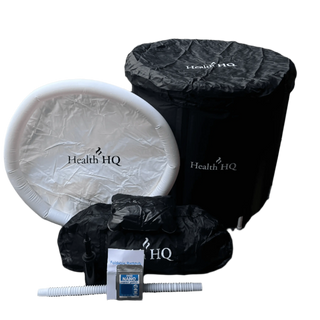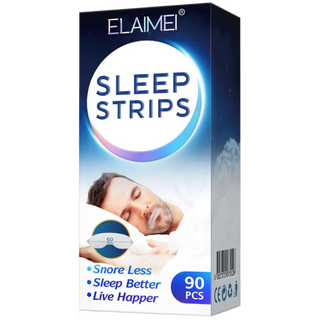Creatine Supplementation: A Comprehensive Guide
Creatine is one of the most popular and well researched dietary supplements in the world. It’s widely used by athletes as well as recreational lifters to increase their performance. This guide looks to give you a better understanding of creatine supplementation including its benefits and some practical recommendations.
How does creatine supplementation work?
Creatine is a chemical that’s mostly found in the skeletal muscles in the body. By supplementing creatine, you increase the amount of creatine and phosphocreatine in the muscles (Becque et al., 2000). This allows for a greater capacity to quickly resynthesize adenosine triphosphate (the body’s source of energy) which then enhances performance during exercise (Burke et al., 2023).
Benefits of using creatine:
When it comes to creatine there are plenty of benefits and they are not just for athletes. Creatine seems to be most popular with people looking to build muscle and there is plenty of evidence to back up their use. While creatine doesn’t directly increase muscular size, it improves performance in the gym which can see better results from training. One study by Nunes et al. (2017) suggested that if you supplemented with creatine everyday for a year, you could gain an extra 1-1.5kg of muscle. Others also found a significant increase in muscular strength when using creatine (Becque et al., 2000) as well reduction in body fat (Candow et al., 2023). What’s really interesting is the benefits of creatine outside of athletic performance and body composition. As creatine is also naturally found in the brain, creatine supplementation has been shown to be beneficial for brain function, especially during exercise or lack of sleep (Roschel et al., 2021). There is also evidence that increased brain creatine can enhance the recovery and reduce the severity of mild traumatic brain injury (Dolan et al., 2019). However, there is more research required to better understand this and to find the optimal dosage for better brain function.
Side effects:
One of the reasons why creatine is so popular other than its long list of benefits is that there is little evidence of adverse side effects. Weight gain due to increased water retention is one of the only observed side effects from creatine and the water is stored within the muscles which can give the muscles a fuller look so it’s not necessarily a bad thing (Juhn & Tarnopolsky, 1998). There have been some anecdotal reports of side effects such as hair loss, acne, and gastrointestinal discomfort but there is little to no evidence to support these claims. I would say that if you have kidney disease, you should check with you doctor before supplementing with creatine.
Practical recommendations:
Another great thing about creatine is that it is easy to take. The recommended dosage of 5g a day is simple enough that it doesn’t have an impact on people’s daily routine. However, there are some ways to make creatine slightly more effective. Taking creatine closely following training can be slightly more effective due to the greater blood flow and because creatine may increase insulin sensitivity and the formation of glycogen in the muscles (Jurado-Castro et al., 2021). Most studies used a loading phase of 0.3g per kg daily for 5-7 days and then went on to a maintenance phase of 0.03g per kg daily. However, this is not required as just consuming the maintenance dosage can lead to creatine saturation although it will take a bit longer. When it comes to types of creatine, creatine monohydrate is the way to go as it is the most widely available and is the most researched. You also don’t need to cycle off creatine, as long-term use of creatine doesn’t seem to have any adverse effects (Kreider et al., 2003).
In summary:
- Creatine supplementation offers many benefits including more gains in muscle size and strength as well as improved cognitive function.
- There are very little observed adverse side effects from supplementing with creatine.
- Supplementing with creatine is as simple as taking 5g a day but there are some ways to make it slightly more beneficial.
References:
Becque, M. D., Lochmann, J. D., & Melrose, D. R. (2000). Effects of oral creatine supplementation on muscular strength and body composition. Medicine & Science in Sports & Exercise, 32(3), 654-658.
Burke, R., Piñero, A., Coleman, M., Mohan, A., Sapuppo, M., Augustin, F., ... & Schoenfeld, B. J. (2023). The effects of creatine supplementation combined with resistance training on regional measures of muscle hypertrophy: a systematic review with meta-analysis. Nutrients, 15(9), 2116.
Candow, D. G., Prokopidis, K., Forbes, S. C., Rusterholz, F., Campbell, B. I., & Ostojic, S. M. (2023). Resistance Exercise and Creatine Supplementation on Fat Mass in Adults< 50 Years of Age: A Systematic Review and Meta-Analysis. Nutrients, 15(20), 4343.
Dolan, E., Gualano, B., & Rawson, E. S. (2019). Beyond muscle: the effects of creatine supplementation on brain creatine, cognitive processing, and traumatic brain injury. European journal of sport science, 19(1), 1-14.
Juhn, M. S., & Tarnopolsky, M. (1998). Potential side effects of oral creatine supplementation: a critical review. Clinical journal of sport medicine, 8(4), 298-304.
Jurado-Castro, J. M., Navarrete-Pérez, A., Ranchal-Sánchez, A., & Ordóñez, F. M. (2021). Optimum timing in creatine supplementation for improved sporting performance. Archivos de Medicina del Deporte, 38(1), 48-53.
Kreider, R. B., Melton, C., Rasmussen, C. J., Greenwood, M., Lancaster, S., Cantler, E. C., ... & Almada, A. L. (2003). Long-term creatine supplementation does not significantly affect clinical markers of health in athletes. Molecular and cellular biochemistry, 244, 95-104.
Nunes, J. P., Ribeiro, A. S., Schoenfeld, B. J., Tomeleri, C. M., Avelar, A., Trindade, M. C., ... & Cyrino, E. S. (2017). Creatine supplementation elicits greater muscle hypertrophy in upper than lower limbs and trunk in resistance-trained men. Nutrition and health, 23(4), 223-229.
Roschel, H., Gualano, B., Ostojic, S. M., & Rawson, E. S. (2021). Creatine supplementation and brain health. Nutrients, 13(2), 586.
By Tristan Logchies,
HealthHQ








